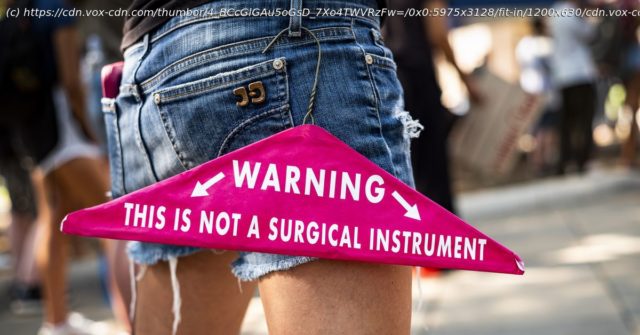A new law bans nearly all abortions in the state. Here’s what that looks like.
A new law bans nearly all abortions in the state. Here’s what that looks like. One Texas patient who was taking birth control had no idea she was pregnant until it was too late. Others came in for their state-mandated ultrasounds but had their abortion appointments delayed by Tropical Storm Nicholas. They, just like the first patient, will now have to travel hundreds or even thousands of miles in order to end their pregnancies — if they can get together the money, time off work, and child care necessary to do so. This is what it looks like to try to get an abortion in Texas since the passage of SB 8, a law that bans nearly all abortions after six weeks, before many people know they are pregnant. For the few patients who do realize it in time, it’s a race against the clock to schedule an appointment and get the money for the procedure — which costs an average of about $500 and typically isn’t covered by insurance. “There’s a sense of urgency that’s causing a devastation among our callers,” said Shae Ward, hotline program coordinator at the Lilith Fund, which funds abortions in Texas. “They just are like, ‘If it’s not done by then, I don’t know what I’m gonna do.’” The options aren’t good. While one Texas doctor, Alan Braid, has been vocal about performing an abortion in defiance of the new law, providers generally say they are complying. That means patients who aren’t able to get an abortion before six weeks, or who don’t realize they’re pregnant before then, have to make what’s often a multi-day journey to a clinic in Oklahoma, Kansas, or even as far away as Michigan or New Jersey. Such a trip is simply out of reach for a lot of Texans. “If you can’t afford the $500 to get seen in-state,” Ward said, “then you definitely can’t afford the $500 to get your procedure somewhere else, and then also a flight and also a hotel.” Abortion funds and other groups are stepping in to help people make the journey, but they fear they’re not reaching everyone. Calls to the Lilith Fund, the state’s oldest abortion fund, are down since the law’s passage, suggesting that some Texans may now believe there’s no way for them to get an abortion, and no point in trying. Meanwhile, providers are preparing for a potential flurry of lawsuits because of a provision in SB 8 that allows ordinary people (even outside of Texas) to sue anyone who assists with an abortion — and that promises plaintiffs at least $10,000 if they win, an incentive that has already prompted a lawsuit against Braid. Fearing such legal action, some doctors had already stopped providing abortions in Texas even before the legal limit. And some fear that the law could launch a wave of vigilantism and surveillance that will disproportionately target people of color, who are already at risk of harassment and violence in the legal system. Overall, less than a month after it went into effect, abortion rights advocates are concerned SB 8 is already working as intended. “This bill is created to use fear and cruelty to prevent people from accessing care,” Ward said. “And that’s what it has done to some degree.” The impact of Texas’s six-week abortion ban Ten or even five years ago, it was hard to imagine a US state passing a near-total ban on abortion — and courts letting it go into effect. Six-week bans have passed before, largely in red states, but they’ve always been blocked by courts. That’s because such a ban is in clear violation of the Supreme Court’s decisions in Roe v. Wade and Planned Parenthood v. Casey, which prohibit states from banning abortion before a fetus can survive outside the womb (generally understood to be about 24 weeks). The sponsors of the Texas law, however, attempted to get around this problem by making it more difficult to challenge in court, as Vox’s Ian Millhiser explains. By leaving enforcement up to ordinary people rather than state officials, they made it harder for abortion providers to sue the state to block the law.






